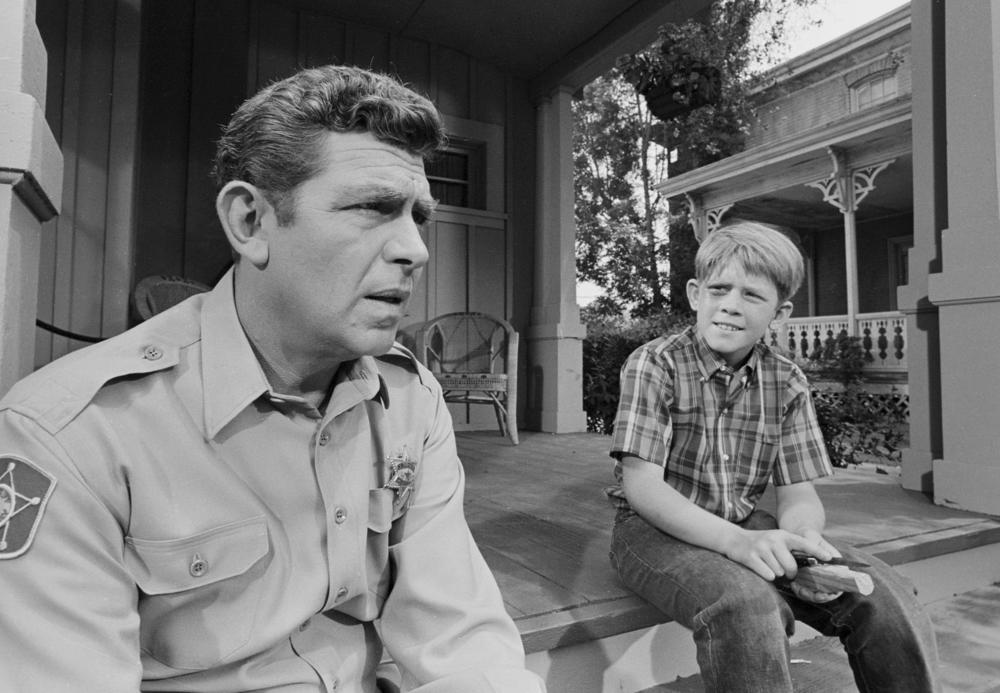
Section Branding
Header Content
An Ode to Mayberry and the Joys of Small-Town Life
Primary Content
Sixty years ago, there was a long-running TV program called “The Andy Griffith Show,” which took place in a fictional North Carolina town called Mayberry. The show’s laughter and life lessons were built on small-town Southern values.
Salvation South Editor Chuck Reece explores the shows deeper meaning and explains why it resonates so personally for him in this week's episode.

TRANSCRIPT:
Chuck Reece - Salvation South editor: Talk to anyone who grew up in a small Southern town in the middle of the 20th century, and you will likely hear this:
(Music - The Andy Griffith Show theme)
My hometown was just like Mayberry. Mayberry was the fictional North Carolina town that was the setting for the The Andy Griffith Show. The show ran on CBS from 1960 to 1968, and I grew up watching it. A man I worked with years ago told me, in all seriousness, that there was nothing you needed to know about living, that you couldn't learn by watching The Andy Griffith Show. And I think he was right.
Sheriff Andy was a single father raising his son, Opie. He resolved problems through reason and friendliness, not force. He respected everyone in his community — from the oddballs like Briscoe Darling to the drunks like Otis Campbell. And for those of us who grew up in towns like Mayberry, the voice of Sheriff Andy still conjures up the memory of parents or neighbors who could set us straight if we got out of line.
Was Mayberry representative of the diversity of Southerners in the 1960s? Of course not. In the entire history of the show, there was only one Black character with a speaking part. But the experience of community that the show represented crossed racial barriers. When Griffith died in 2012. Rochelle Riley, a prominent Black columnist for the Detroit Free Press, made that case forcefully. She grew up watching the show in her hometown of Tarboro, N.C.
"My family didn't watch The Andy Griffith Show to count black people," Riley wrote, "we watched to see our way of life, one that included spending hours picking plums in a plum orchard and sitting under a chinaberry tree, eating them, walking along ponds to collect cattails. I lived in Mayberry."
I lived in Mayberry, too. In fact, I was Opie. Andy was a widower; my father, Clarence, was a widower, too. Opie was an only child; I was, too. Opie had free rein to wander the streets of Mayberry. I had free rein to wander anywhere I wanted to go in my hometown of Elijay, Ga. I'd stop at the soda fountain inside Starn's drugstore on the town square. I'd drop into Willie's Elijay Record Shop, where I spent hours combing through the racks. I'd stop at the barber shop and visit my Uncle Clifford, who ran it.
Sheriff Andy Taylor and Clarence Reece shared a common problem: the challenge of raising young boys on their own. I watched a bunch of Andy Griffith reruns recently, and as I did, I let my memories of growing up in Elijay flood my soul. And it occurred to me that Andy and Clarence did not raise Opie and me by themselves. They both had an entire town to help them with the job.
If there are any Mayberrys still out there, the kids who grow up there should count their blessings. They are fortunate indeed. Come visit us at SalvationSouth.com.
Salvation South editor Chuck Reece comments on Southern culture and values in a weekly segment that airs Fridays at 7:45 a.m. during Morning Edition and 4:44 p.m. during All Things Considered on GPB Radio. You can also find them here at GPB.org/Salvation-South and now on your favorite podcast platforms as well.
Sixty years ago, there was a long-running TV program called The Andy Griffith Show, which took place in a fictional North Carolina town called Mayberry. The show’s laughter and life lessons were built on small-town Southern values.
Salvation South Editor Chuck Reece explores the shows deeper meaning and explains why it resonates so personally for him in this week's episode.






